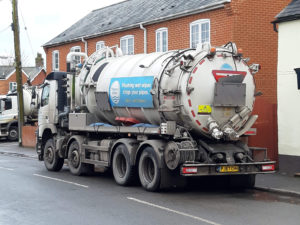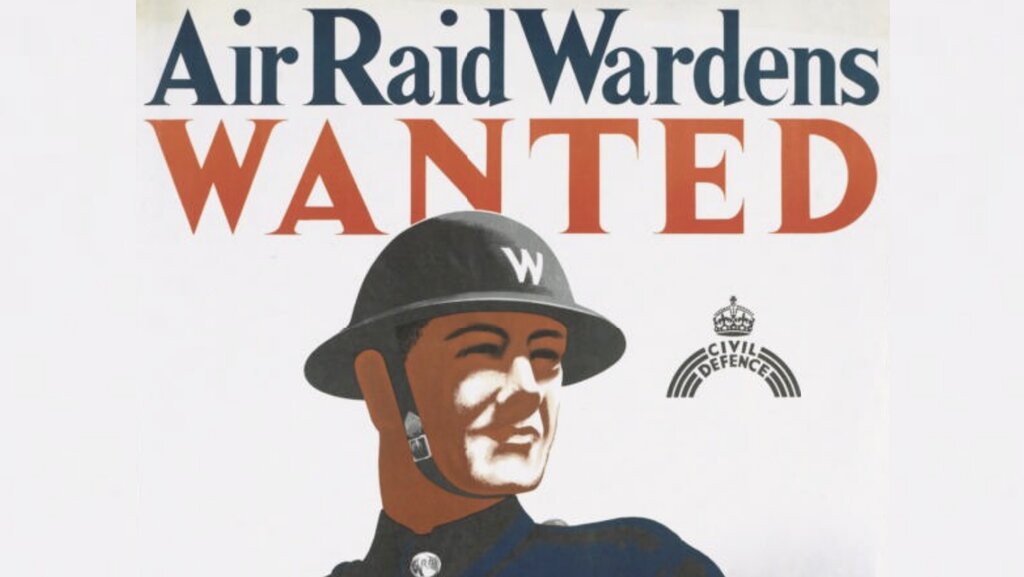
With the rise of Hitler during the 1930s the Air Raid Precautions (ARP) Department was created in March 1935.
In April 1937, the Air Raid Wardens’ Service was created which aimed to seek some 800,000 volunteers (some 200,000 people had joined by mid-1938, and following the Munich Crisis of September 1938 another 500,000 had enrolled). Wardens gave ARP advice to the public and were responsible for reporting bombs and other incidents, and were joined by the Women’s Voluntary Service in May 1938. On 1 January 1938, the Air Raid Precautions Act came into force, compelling all local authorities to begin creating their own ARP services. The service operated in towns and there were special guidelines for villages:
Extract from Air Raid Precautions Handbook No 8 – 1939
In villages or places of less than, say, 1500 inhabitants, the number of wardens will vary with the size of the place, and they will need not to be organised in two reliefs. One post, used as a rallying point for a raid precautions volunteers generally, will often be sufficient, and individual wardens could operate mainly from their own homes since the wardens and their homes will be well known to everyone in a small community, this arrangement will be convenient because the wardens will this be spread over the area.
Hungerford Rural District Council was responsible for organising ARP services in the Lambourn area. Although the standard procedures prescribed that the ideal warden should be at least 30 years old, men and women of all ages were wardens. The role of ARP was open to both men and women but only men could serve in the gas contamination (teams that dealt with chemical and gas bombs), heavy and light rescue and demolition services.
Duties of an Air Raid Warden
Extract from Air Raid Precautions Handbook No 8 – 1939
The warden is not a policeman, nor a special constable, and he will not have, and does not need, police powers. He can, however, by his example and his readiness to help, exercise a powerful influence in time of stress.
His responsibilities when on duty are confined to his post and his sector, but he has the whole resources of the official air raid precautions organisation behind him. Policemen, special constables and fire patrols will be frequently moving through his sector , and he will be able to summon aid of any kind when it is needed. One of his chief duties will be to report bomb damage in his neighbourhood so that the proper help can be sent.
One of the Air Raid Wardens appointed for Lambourn was William Pottinger who started his duties in September 1938
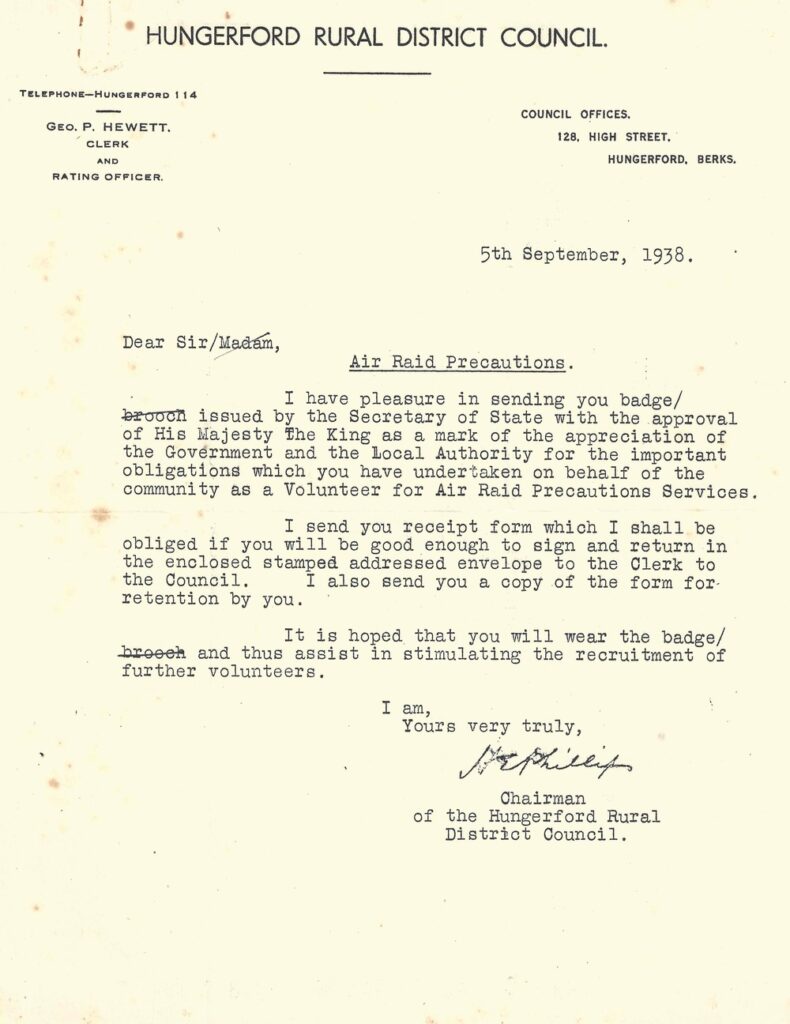
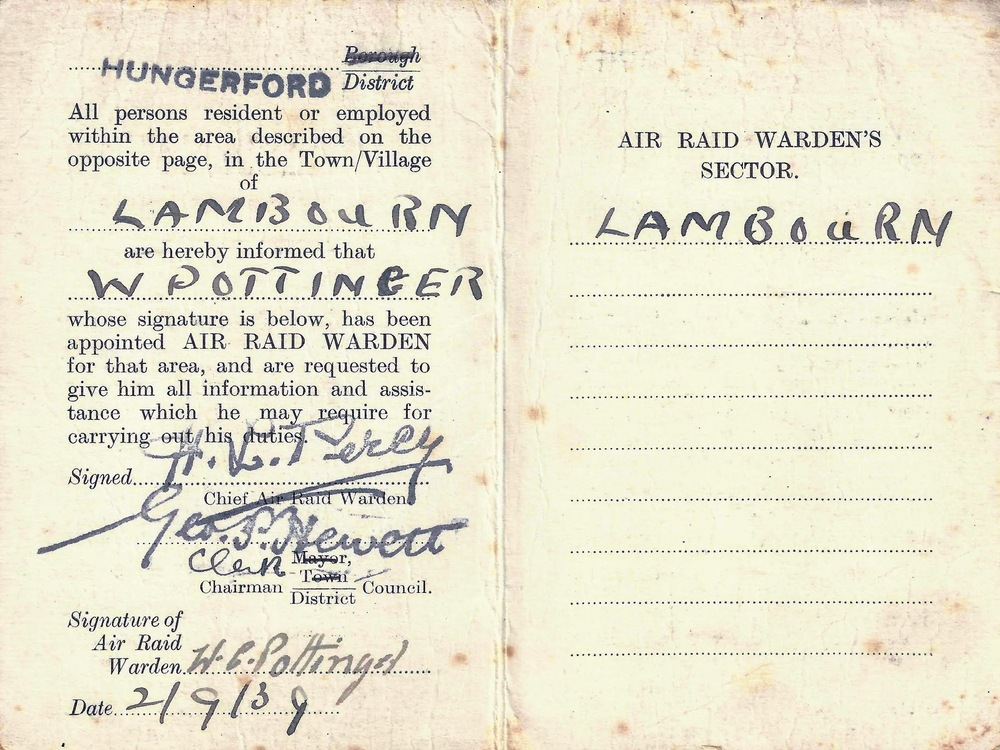
Air Raid Wardens were supplied with basic equipment although it is not known which equipment was issued for Lambourn.
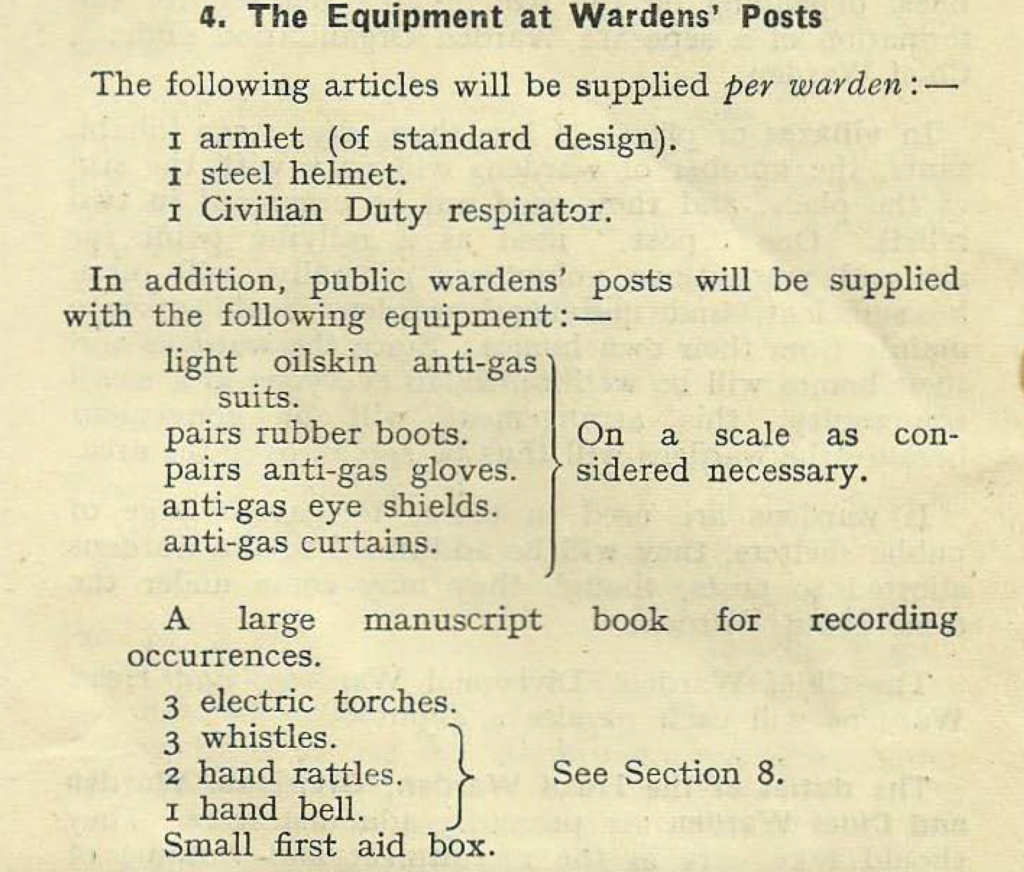
Thank you to David Pottinger for the photographs and information relating to William Pottinger.


